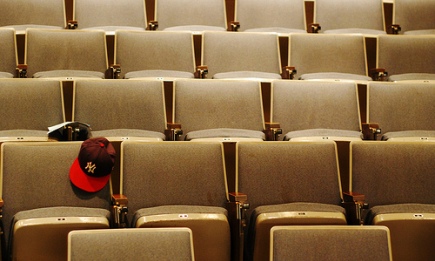Teachers, reclaim higher education

ScienceGuide talked with
What are your expectations regarding the upcomingRoosevelt/Harvard seminar and the exchange you will have with yourDutch colleagues?
Last year we had a wonderfully collegial exchange with our Dutchcollaborators, and expect to do so again! We learn a great dealfrom these interactions, and we have found that the faculty of theNetherlands have thought deeply about teaching and have receivedmany sorts of training that they bring to a conversation like this.An international exchange about teaching can spark many ideas and Iexpect the week will be inspiring and eye opening.
Which new priorities/challenges are coming to theforefront in your work on excellent teaching atHarvard?
Of course we are facing a new frontier in which online learningand digital media are changing the landscape of higher education.This is compelling educators to rethink their mission andreconceive their best practices. Even the great researchuniversities like Harvard are being challenged to redefineexcellence and to be more deliberate in generating their curriculaand classroom practices. Our
How will you address this here inHolland?
We will focus on two principles of teaching excellence that areborne out by research:
1.) Designing courses based on learning objectives that areintelligently thought out by faculty-something that many teachersdo already in the Netherlands.
2.) Active learning, or the principle that students actuallylearn best from what they do (as cognitive science tells us) evenin a classroom. We will have sessions with our Dutch colleagues oncourse design, and we will engage in a practice we callmicro-teaching to closely examine and critique one another’sclassroom practices. These exercises are bound to make us all morereflective about what we do.
Is teaching professors about excellent teachingdifferent from teaching students in a classroom?
We are fortunate to be working with a group of highlyexperienced faculty. A great deal of what we do will involvedrawing upon their expertise, discussing its virtues and thinkingabout how we might capitalize on and improve it. You can dosomething similar in teaching students, but re-imagining the bestpractices of teaching with experienced faculty is a distinctivepleasure.
How does the Derek Bok Center affect teachers atHarvard University?
We work with faculty and others teaching at Harvard at alllevels:
How do you translate your findings into realteaching?
Translation is indeed the challenge, it is one thing to say thatresearch tells us that active learning works, and quite another todiscover how to make it happen. Our
Liberal Arts are growing increasingly
At its best, liberal arts education produces independentthinkers who are well-rounded, quick learners who have transferableskills to offer any future employer. They are learned people withthe breadth of knowledge and will also be well-informed citizens.Specialization is highly important for the education of our youthand the young adults of the Netherlands, but so is the opportunityto think broadly and deeply that is afforded by liberal artseducation. It is not my place to say what should be done in yourcountry, but I do believe that both kinds of education areimportant.
The next
We are at a crossroads at which the conveyance of knowledgethrough the Internet requires us to reimagine what we do asteachers. There is a great opportunity for our faculties to reclaimand redefine the mission of higher education. We must be moredeliberate in the design of our courses and curricula, thinkingfreshly about the learning objectives we have for our students, andwe must find innovative ways to engage them through activelearning. I think we should not be afraid to try new things andthat we should bring our natural talents as researchers to bare onour own efforts to educate our students so that we become trulyreflective practitioners of teaching.
This week, ScienceGuide publishes a series of articles onthe Roosevelt Academy workshop on teaching excellence. Follow ourreports on this event via
To stay up-to-date with latest developments in teaching,click here.
Meest Gelezen
Vrouwen houden universiteit draaiende, maar krijgen daarvoor geen waardering
Wederom intimidatie van journalisten door universiteit, nu in Delft
Hbo-docent wil wel rolmodel zijn, maar niet eigen moreel kompas opdringen
‘Burgerschapsonderwijs moet ook verplicht worden in hbo en wo’
Raad van State: laat taaltoets nog niet gelden voor hbo-opleidingen

